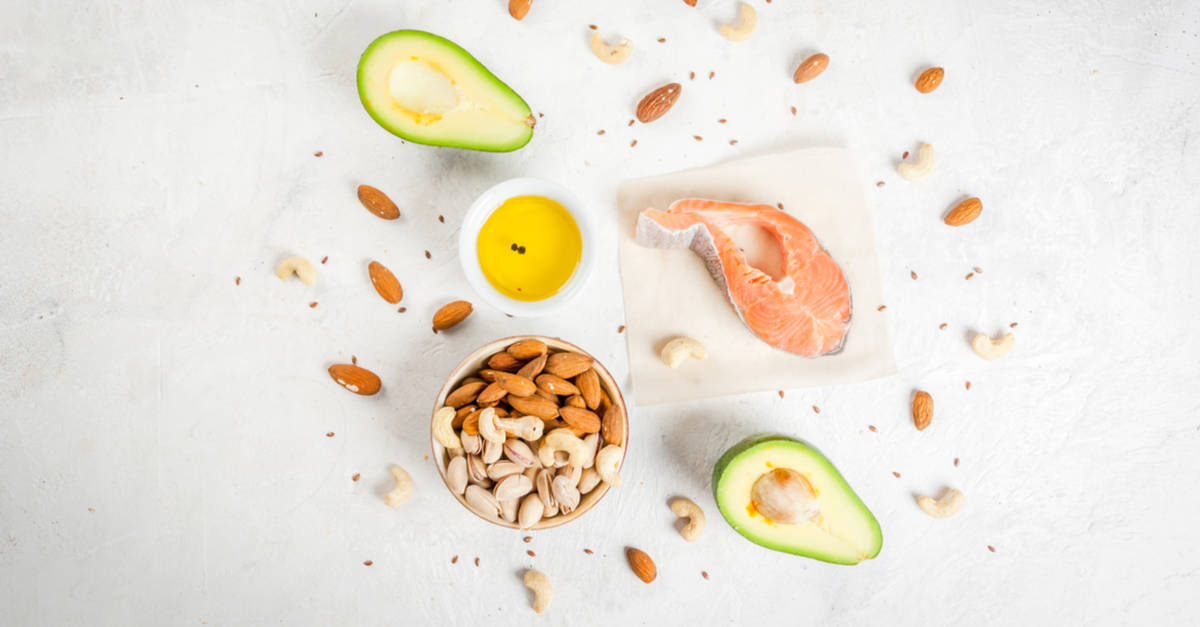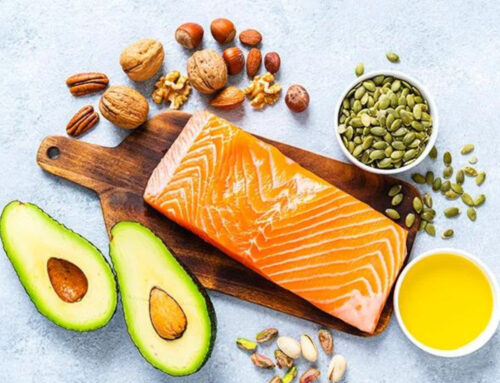This is the most common question I get when I put a patient on a keto-style food plan.
Today I want to put all your fears to rest and hopefully give you a paradigm shift in how you look at cholesterol.
Ready? Hang on to your hats…
Cholesterol is an issue of too much sugar and processed bad oils, not an issue of too much good fat (even saturated fats like coconut oil).
My experience has shown that about 80-90% of people see a significant reduction in their total cholesterol and LDL, a decrease in Triglycerides and an increase in HDLs when they follow a low carb, moderate protein, high good fat diet. This usually surprises their MD when their blood work improves drastically in a short time.
But if you are one of the unlucky few whose total cholesterol goes up and you happen to mention that you have been eating a ketogenic style diet, your MD might freak out and tell to immediately cut back on all that good fat before you have a heart attack.
Let me put your fears to rest. Just like I’ve taught you with thyroid conditions, there are many factors at play here. Here are the three things you need to look at to determine if your cholesterol levels are dangerously high and what the cause of that high cholesterol might be.
YOUR TRIGLYCERIDE/HDL RATIO
The most important ratios on your blood work that determine if you are going to have a heart attack is your TG/HDL ratio.
In adults, the triglyceride/HDL (your “good” cholesterol) ratio should be below 2 (just divide your triglycerides level by your HDL).
Or, more precisely, the triglyceride/HDL ratio indicates:
- 2 or less is considered ideal
- 4 – high
- 6 – much too high
And, since HDL (high density lipoprotein) is protective against heart disease, the lower the ratio, the better. In other words, the lower your triglycerides or the higher your HDL, the smaller this ratio becomes.
It is now believed that the triglyceride/HDL ratio is one of the most potent predictors of heart disease.
An author of a Harvard-led study reported: “High triglycerides alone increased the risk of heart attack nearly three-fold.
And people with the highest ratio of triglycerides to HDL — the “good” cholesterol — had 16 times the risk of heart attack as those with the lowest ratio of triglycerides to HDL in the study of 340 heart attack patients and 340 of their healthy, same age counterparts.
The ratio of triglycerides to HDL was the strongest predictor of a heart attack, even more accurate than the LDL/HDL ratio.”
If you are not convinced, just google TG/HDL ratios and you will see the studies yourself.
A HYPOTHYROID PROBLEM
When I am reading blood work on a patient and see high triglycerides, high total cholesterol, and high LDL, I think thyroid problem. When a person’s thyroid is functioning below normal, he or she makes fat much more quickly than it’s burned, which drives up triglycerides, LDL, and total cholesterol.
Most of my patients who have a thyroid problem also have a sluggish liver and gallbladder, so the fat is not easily metabolized and cleared from the body. Cells may also be less receptive to taking up LDL, so too much accumulates in the blood, giving a high reading.
Be sure you are looking at your thyroid test results as well. The tests I like to see with my thyroid patients are:
- Free Thyroxine Index (FTI)
- T3 Uptake (THBR)
- Thyroid-Stimulating Hormone (TSH)
- Thyroxine (T4)
- Tri-iodothyronine (T3)
- Thyroid Peroxidase (TPO) Ab
- Thyroglobulin Ab
- Free T3
- Reverse T3
- Free T4
YOUR GUT MICROBIOME
Did you know that you need to have the right bacterial balance in your gut to lower your cholesterol?
You could walk into your doctor’s office. He or she measures your cholesterol and pronounces it “high” and puts you on statins for the rest of your life. And it’s very possible that all you needed to do was up your daily intake of fermented foods.
We run a test in our office called the Gut Zoomer. It measures any nasty pathogens that might be living in your gut and tells us if you have the right bacteria to lower your cholesterol, burn fat, make vitamins B and K, and prevent an autoimmune condition.
It’s a key test to take if you want to know why your cholesterol levels are high.
Hopefully, you can see it’s not as simple as looking at your total cholesterol and then taking a statin drug forever. Statin drugs are dangerous. Long-term use is being linked to Alzheimer’s and dementia. You want to do everything possible to avoid long-term use of these harmful drugs.
With the right ratios, cholesterol can be your friend. It can nourish your brain and keep you thinking clearly for years to come.
Keep yourself informed and stay the ketogenic path. Miracles happen when you nourish your brain and cells with ketones.









Help. I just got my blood work after watching your videos and doing intermittent fasting for 2 months. My triglycerides went up they are 702! My total cholesterol went up it is 220, my HDL is 33 too low and my LDL is 59 too low! TSH is .886. My A1C is 5.6 I can’t get worse! D is low 17.6, All other blood work looks great CBC without diff., complete metabolic panel, B12 was 415. I had hoped to see a better lipid panel from fasting????. Advice and help please!
Hi Courtney, did you get any advice or help from Dr. Mindy, community coaches or members? From the little I understand, fasting can cause LDLs to rise, but not to the dangerous levels. Some in the fasting community suggest that at least 3 days prior to your testing appointment, we should not fast longer than 14 hours and eat a “regular” diet in our meals (vs. low carb). Hope this helps?